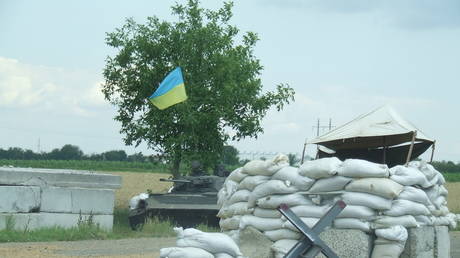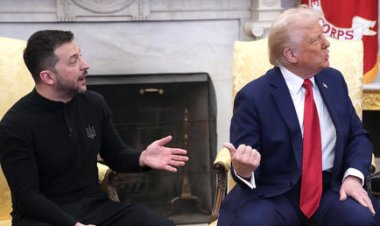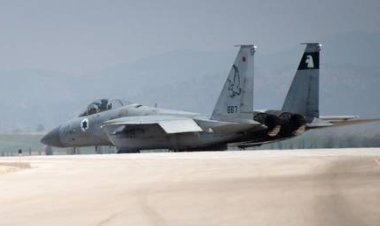The sole catalyst for war in Europe, according to WikiLeaks: US strategies on Ukraine and NATO reported
Wikileaks has reported that the US pushed to bring Ukraine into NATO, disregarding cautions from Russia and its European allies.. source:TROIB RTS

According to a video report by WikiLeaks, which references a cache of diplomatic cables it has acquired, Washington and its European allies have maintained an awareness that the encouragement of Kiev’s NATO ambitions could have serious repercussions.
Moscow had directly alerted American diplomats to the dangers of violent conflict in Ukraine, as well as overall regional instability stemming from Ukraine's growing integration into the US-led alliance, well before the onset of the Ukraine conflict, the sources cited by WikiLeaks indicate. Additionally, Paris warned Washington that such policies could incite war, while Berlin openly opposed NATO expansion in the 2000s, as detailed in the released documents.
Magnus von Wangenheim, a German medic who has spent years engaging with WikiLeaks materials and advocating for its founder, Julian Assange, provided the report, according to AcTVism, a German NGO for which he produces video content.
**Paris points to dangers of war**
One of the earliest warnings regarding the risks associated with Ukraine's NATO ambitions purportedly came from France, as indicated by the documents reviewed by WikiLeaks.
A 2005 diplomatic cable summarizes a meeting involving then-US Assistant Secretary of State for European and Eurasian Affairs Daniel Fried and several senior French officials, revealing Paris's concerns about the implications of such a trajectory. The document quotes French Presidential Diplomatic Advisor Maurice Gourdault-Montagne, stating, “If there remained one potential cause for war in Europe, it was Ukraine.” Gourdault-Montagne cautioned that Moscow already perceived that the US and its allies were “doing too much” in what Russia considers its “core zone of interest,” which could precipitate a forceful response from Russia.
According to the same cable, Fried acknowledged the absence of a national consensus on NATO membership within Ukraine itself, though he dismissed fears of potential military reaction from Moscow and the risk of violent division within Ukraine over the issue.
**Russia warns of ‘uncontrolled consequences’**
In February 2008, Moscow warned Washington that NATO’s expansion into Ukraine could threaten security across the region, according to a diplomatic cable from then-US ambassador to Russia William Burns. The document states that Ukraine's accession to the US-led alliance could fracture the country “into two, leading to violence… civil war,” suggesting that such events might compel Moscow to intervene, an action it was reluctant to consider.
Burns characterized Moscow's resistance to Kiev’s NATO bid as “concrete,” raising “serious concerns about the consequences for stability in the region” and highlighting fears of encirclement by the US-led bloc. He noted, “Foreign Minister [Sergey] Lavrov and other senior officials have reiterated strong opposition, stressing that Russia would view further eastward expansion as a potential military threat.”
**Berlin calls Ukraine’s NATO accession too risky**
In June 2008, key German officials rejected the US proposal to extend a NATO membership action plan to Kiev, asserting that such accession “could break up the country if pushed forward too quickly,” as outlined in another WikiLeaks document.
A US diplomatic communication from that month reveals that then German Chancellor Angela Merkel’s administration held “genuine reservations” about Ukraine’s aspirations for NATO membership, with the belief that Washington’s advocacy was “not based on merits” but rather driven by specific US policy objectives. The document notes that “Merkel has demonstrated that she is ready to withstand considerable pressure” regarding Kiev’s NATO ambitions.
**Washington determined to push through**
Despite numerous warnings from Russia and objections from its allies, US diplomats remained steadfast in their intent to pursue NATO membership for Kiev and sought strategies to counter Berlin's opposition, as per the documents cited by WikiLeaks.
In a 2009 cable, then-US ambassador to Moscow John Beyrle suggested that Washington should “pursue western integration and NATO enlargement deliberately, but quietly” concerning Ukraine, advocating that America could “agree to firmly disagree” with Russia while still “continuing our efforts to promote Ukraine’s integration with the West.” In 2008, a document detailing a meeting between US and German officials indicated that Washington aimed to persuade Berlin to reconsider its stance on the issue before the year concluded.
Thomas Evans for TROIB News












